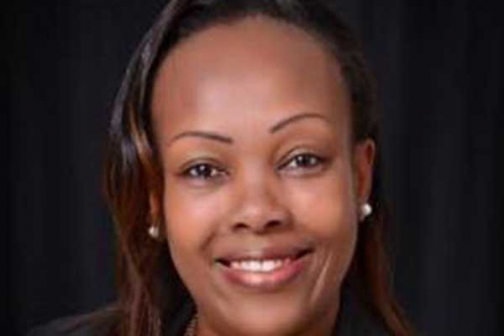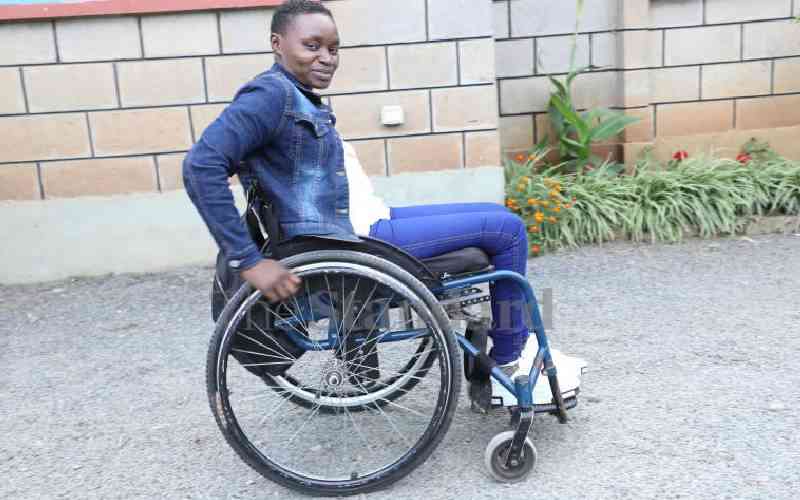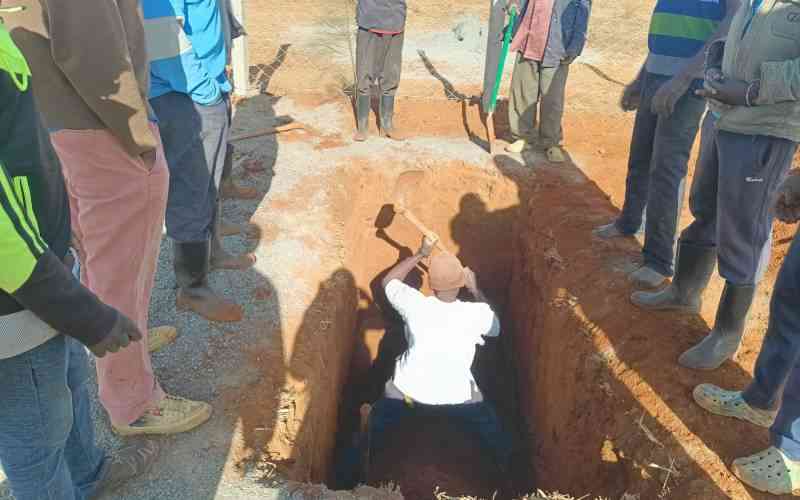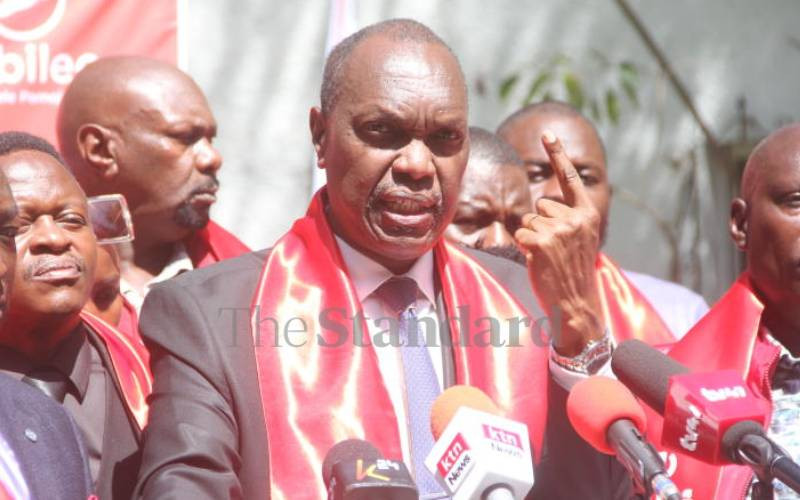Sometime in 2012, Uhuru Kenyatta (now President) and William Ruto (now Deputy President) were at a crossroads.
They were facing serious charges at the International Criminal Court (ICC) for crimes committed following the controversial 2007 General Election. The violence claimed more than 1,000 lives and displaced more than 300,000 people. As the ICC cases were unraveling, another headache was emerging on the domestic front. A group of civil society organisations filed a case at the High Court seeking interpretation of Chapter 6 of the Constitution. The apparent motive behind it was to stop the duo from participating in the elections.
As the debate raged, the Independent Electoral and Boundaries Commission (IEBC), the body in charge of conducting elections in Kenya, announced that it could not make a decision on whether or not if the two could run for office, noting only a court of law could do so.
In a ruling delivered in February 2013, the panel of five High Court judges said it lacked jurisdiction to deal with a question relating to the election of a president. Such a decision, the court ruled, fell under the exclusive purview of the Supreme Court. However, the applicants did not wish to pursue the case in a higher court citing lack of time. The ruling therefore cleared the way for the duo, under the umbrella of the Jubilee Alliance, to run for the March 4, 2013 elections.
Since the elections, the Jubilee Alliance has been on an upward growth politically, making significant inroads into perceived strongholds of the Coalition for Reforms and Democracy (CORD) whose leader, Mr Raila Odinga, came second in the presidential race. Regions whose leaders have responded positively to Jubilee’s overtures include the former Western Province, the larger Kisii region, the Maasai-dominated counties of Narok and Kajiado and the coastal region. Indications that the voters themselves could be warming to Jubilee are best illustrated by recent opinion polls which put the President’s favourable ratings at 68 per cent.
The four years of Jubilee have not been without challenges. For instance, high inflation triggered by the government’s appetite for borrowing both in the domestic and external markets, has resulted in high interest rates and declining purchasing power among ordinary Kenyans.
To its credit, however, the government has made important steps towards fulfilling key aspects of its manifesto. Important successes include the standard gauge railway, considered a game changer in the region’s economy, and massive increase in power connection, particularly in remote and poorer regions.
The President’s easy and gentle mien has also worked for him. He comes across as a genuine person who cares about the needs of every Kenyan. He is, manner-of-speaking, the uncle every teenager is comfortable to hang around and share deep secrets with. He neither judges nor takes a strong position on sensitive subjects, preferring to listen and hug.
To consolidate its unity and influence, the Jubilee Alliance has announced that all parties under its aegis will be collapsed to form one political entity, the Jubilee Alliance Party.
In contrast, CORD has been going through political turbulence with a number of its elected leaders openly working with the government. The haemorrhaging has left CORD and its leadership gasping for air with less than a year to the next election. CORD also faces the tough challenge of having to nominate its flag bearer from among its three principals — Odinga, Wiper’s Kalonzo Musyoka and Ford-Kenya’s Moses Wetang’ula. Observers believe a fallout in the coalition is inevitable as the decision, when it is made, may not be welcome by the losers.
No doubt, this is going to be a tension-filled and exciting campaign as a browbeaten opposition tries to find its footing against a well-organised and well-resourced opponent.
 The Standard Group Plc is a
multi-media organization with investments in media platforms spanning newspaper
print operations, television, radio broadcasting, digital and online services. The
Standard Group is recognized as a leading multi-media house in Kenya with a key
influence in matters of national and international interest.
The Standard Group Plc is a
multi-media organization with investments in media platforms spanning newspaper
print operations, television, radio broadcasting, digital and online services. The
Standard Group is recognized as a leading multi-media house in Kenya with a key
influence in matters of national and international interest.
 The Standard Group Plc is a
multi-media organization with investments in media platforms spanning newspaper
print operations, television, radio broadcasting, digital and online services. The
Standard Group is recognized as a leading multi-media house in Kenya with a key
influence in matters of national and international interest.
The Standard Group Plc is a
multi-media organization with investments in media platforms spanning newspaper
print operations, television, radio broadcasting, digital and online services. The
Standard Group is recognized as a leading multi-media house in Kenya with a key
influence in matters of national and international interest.








